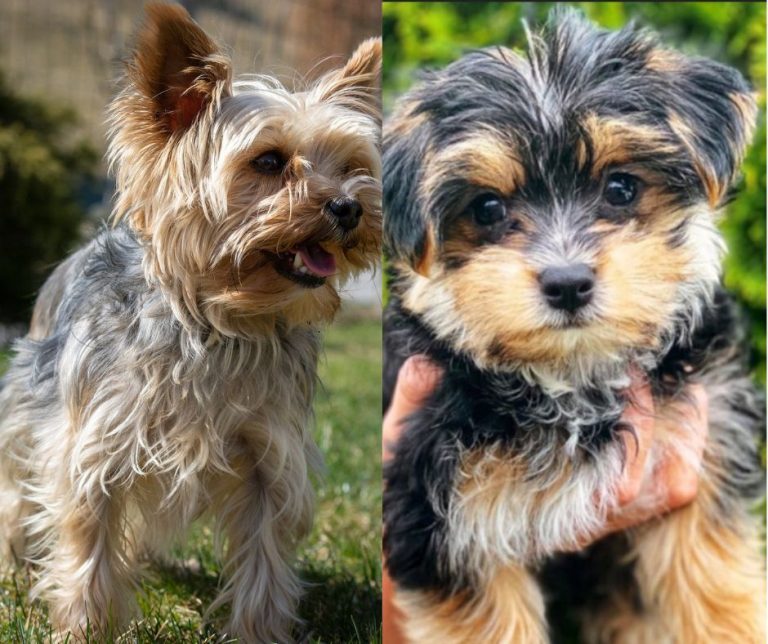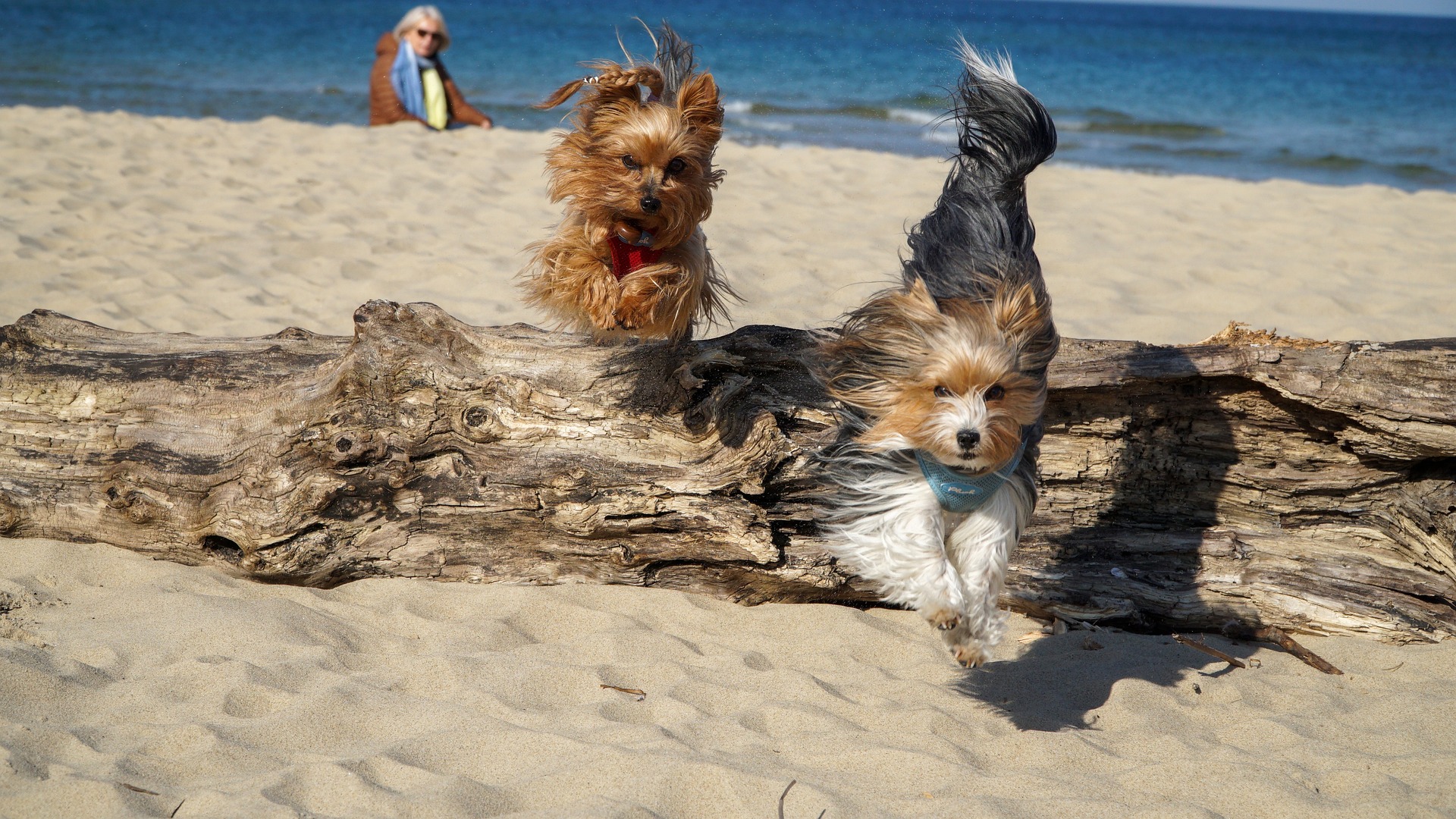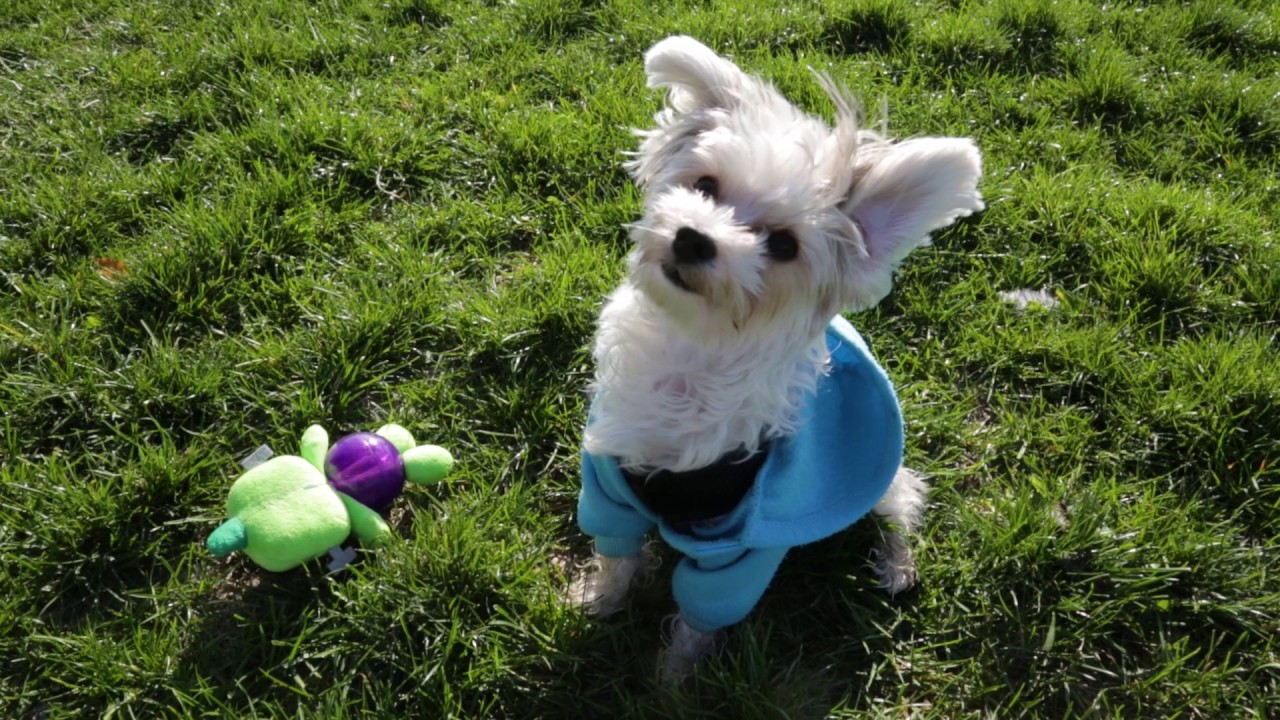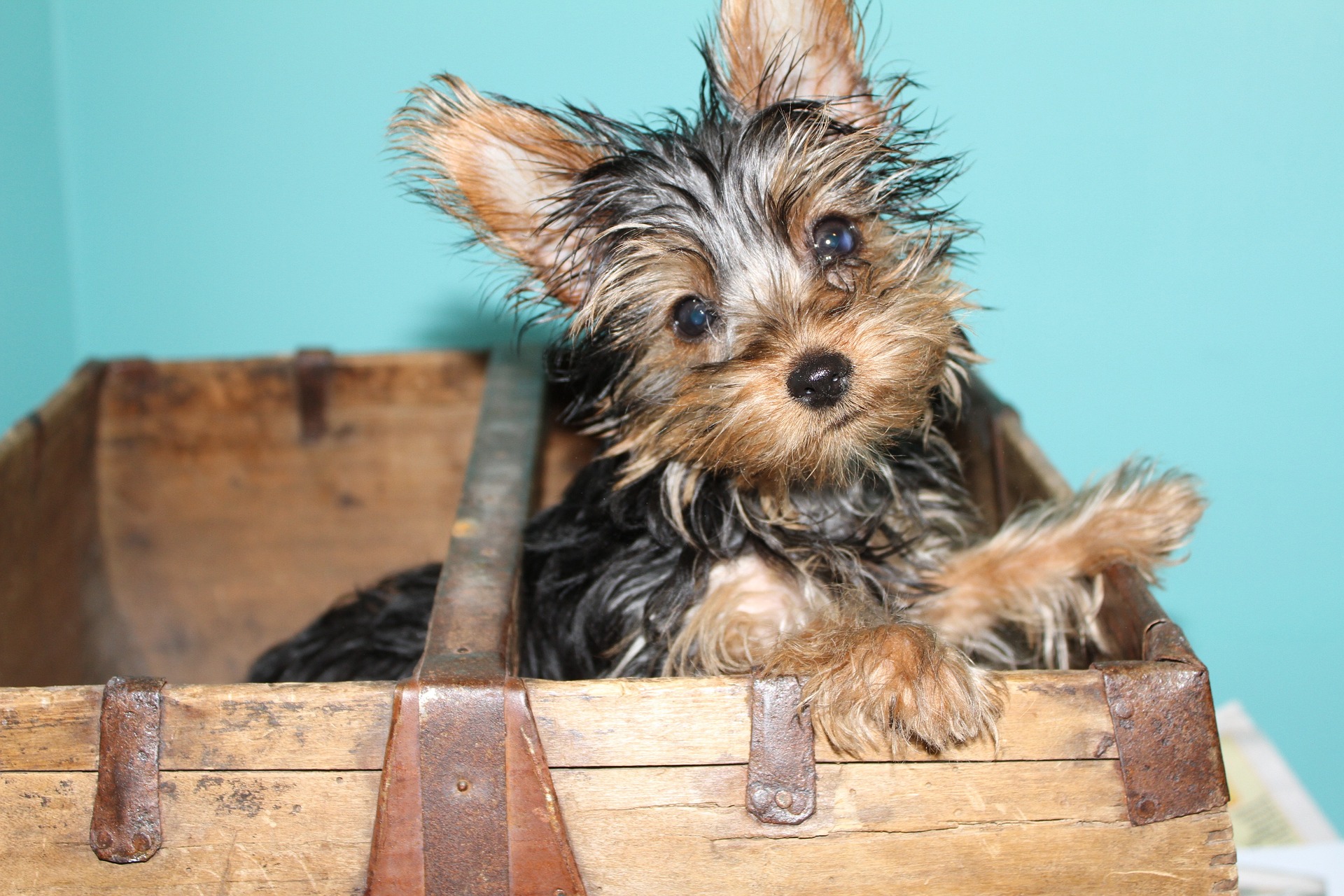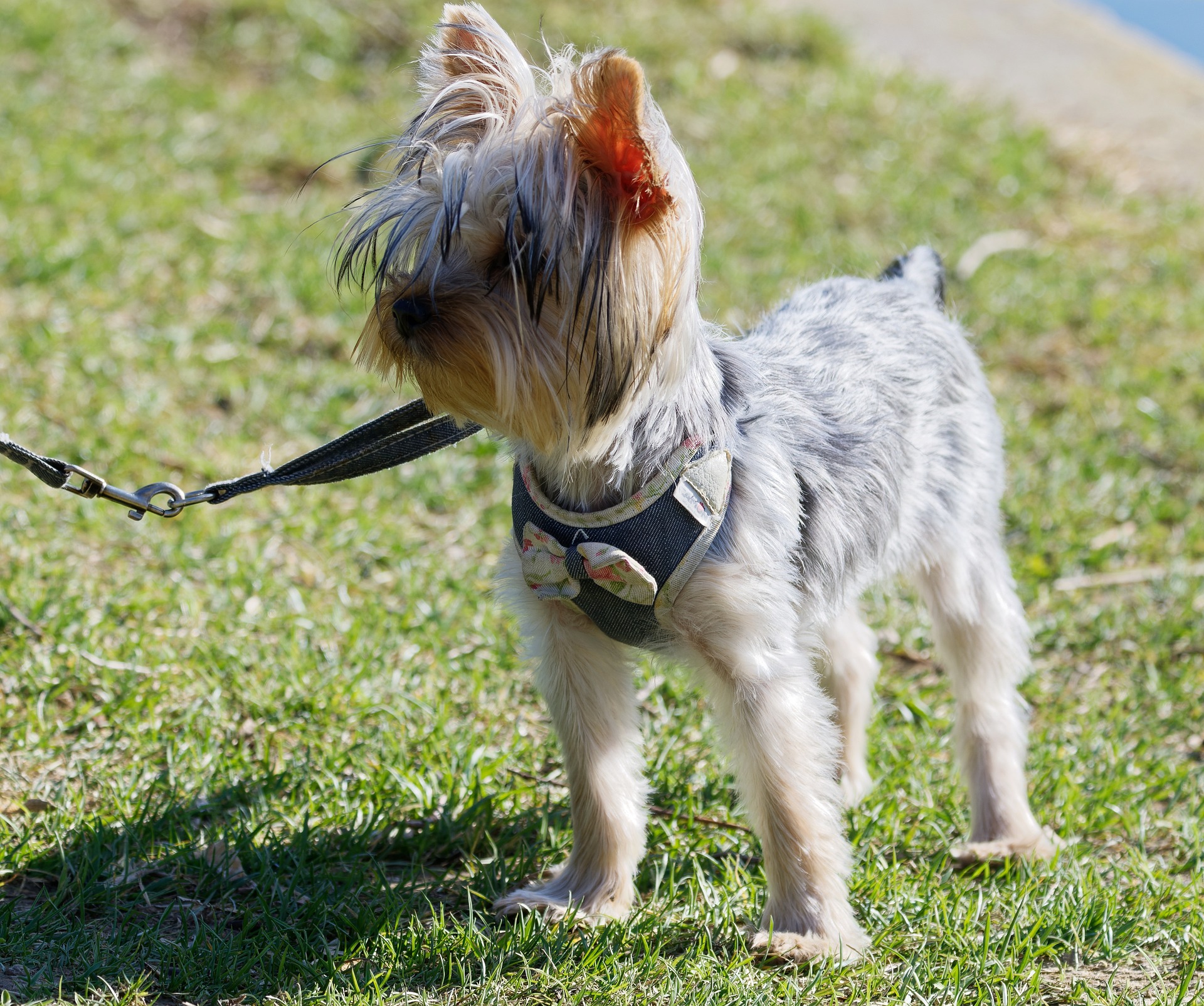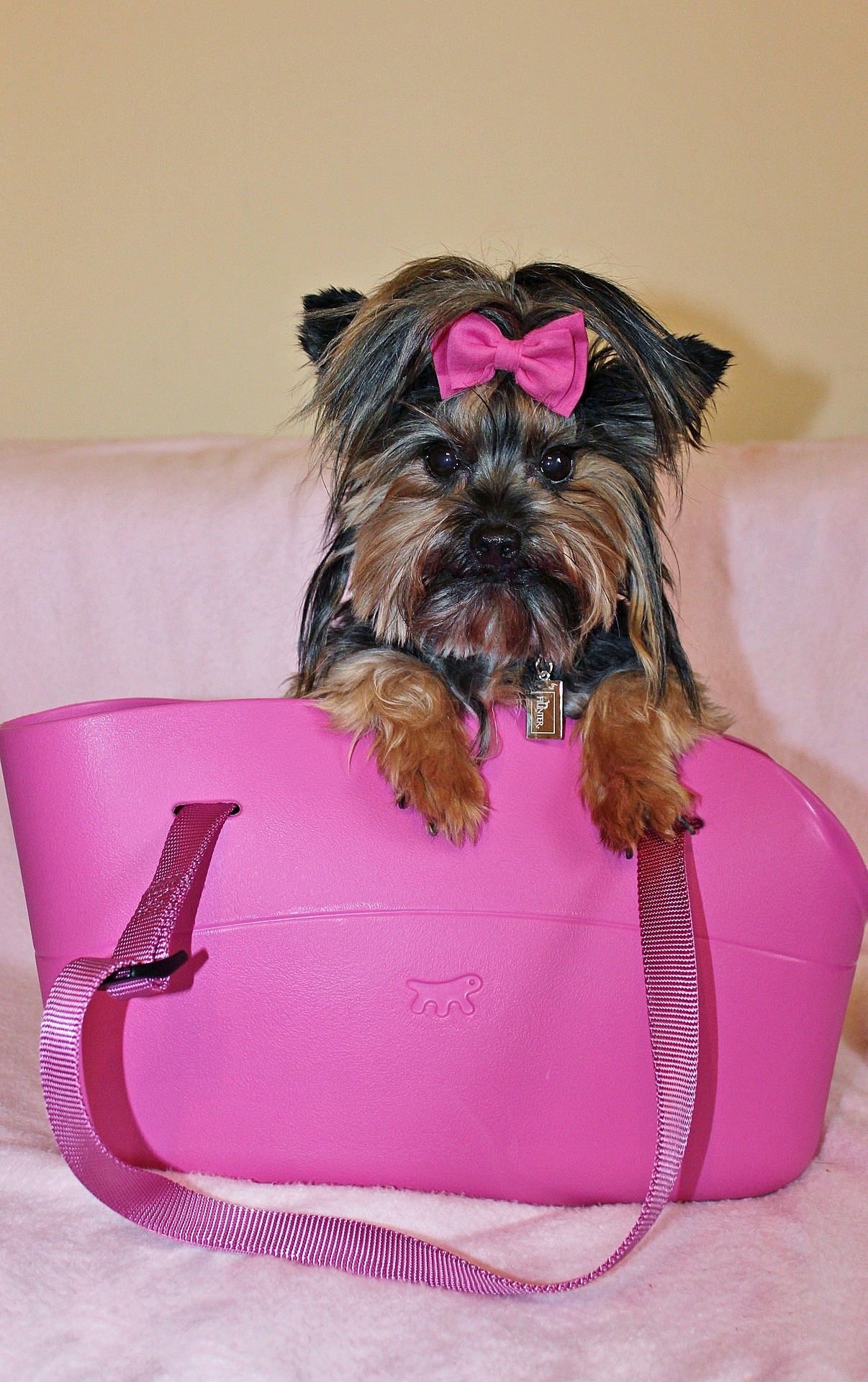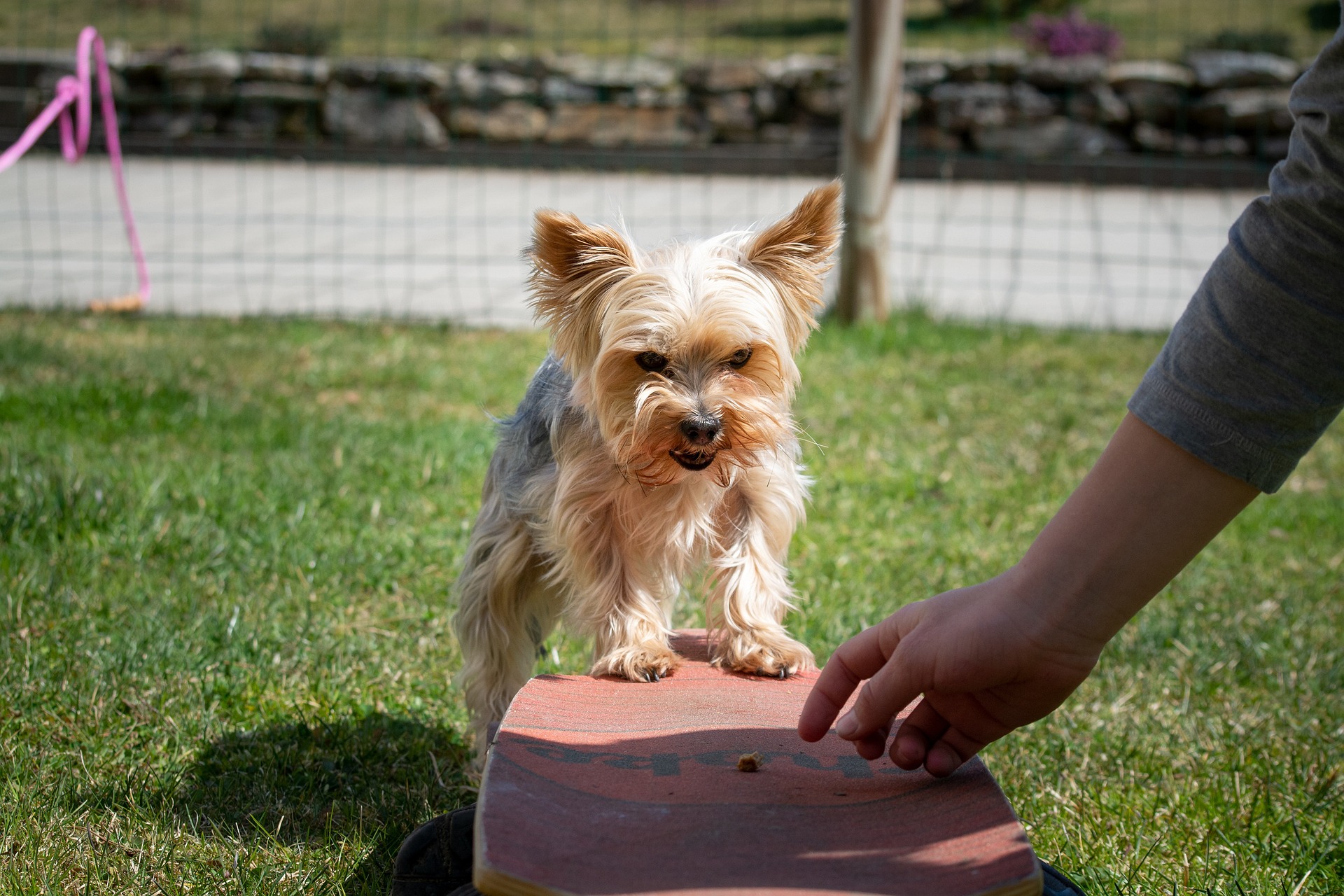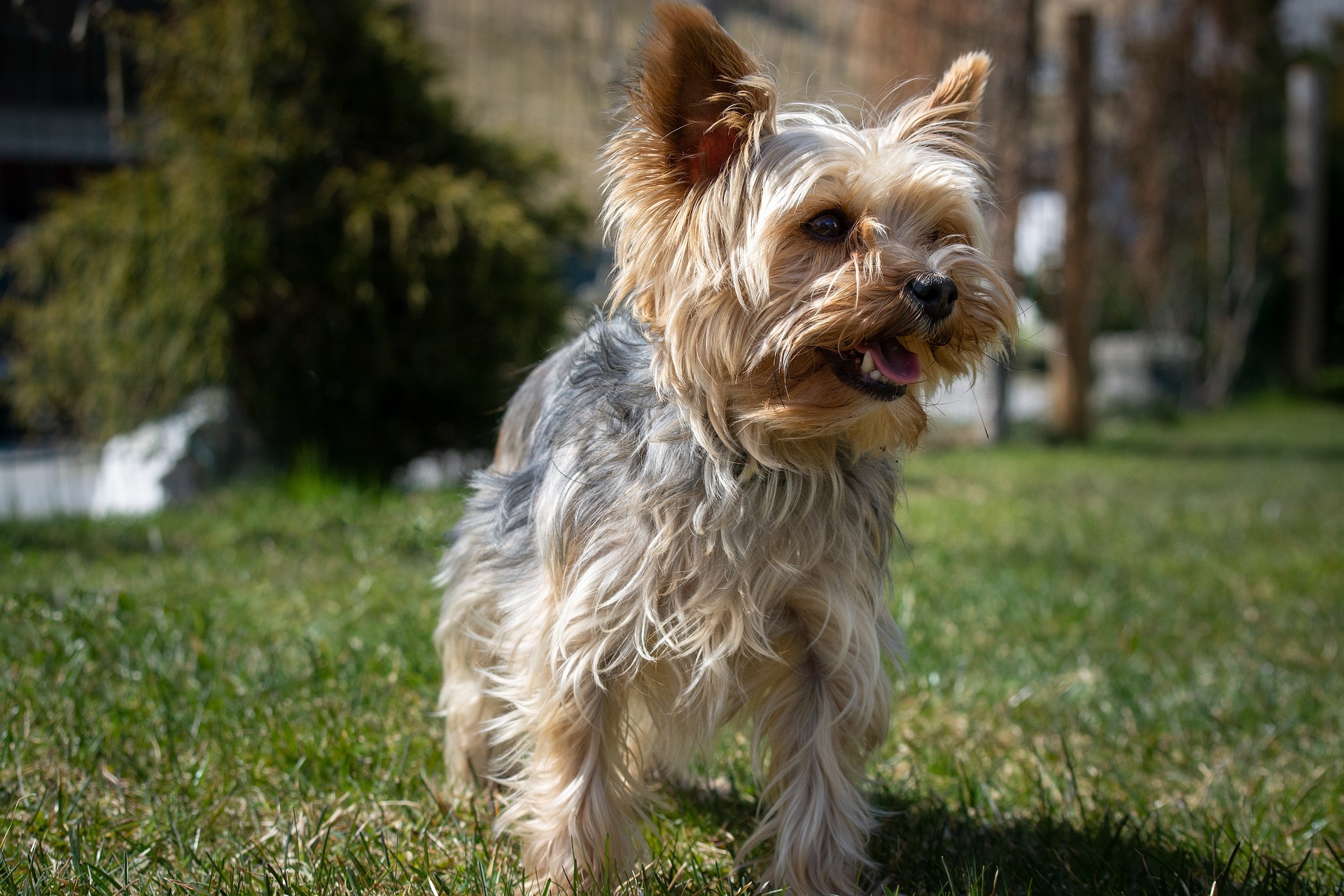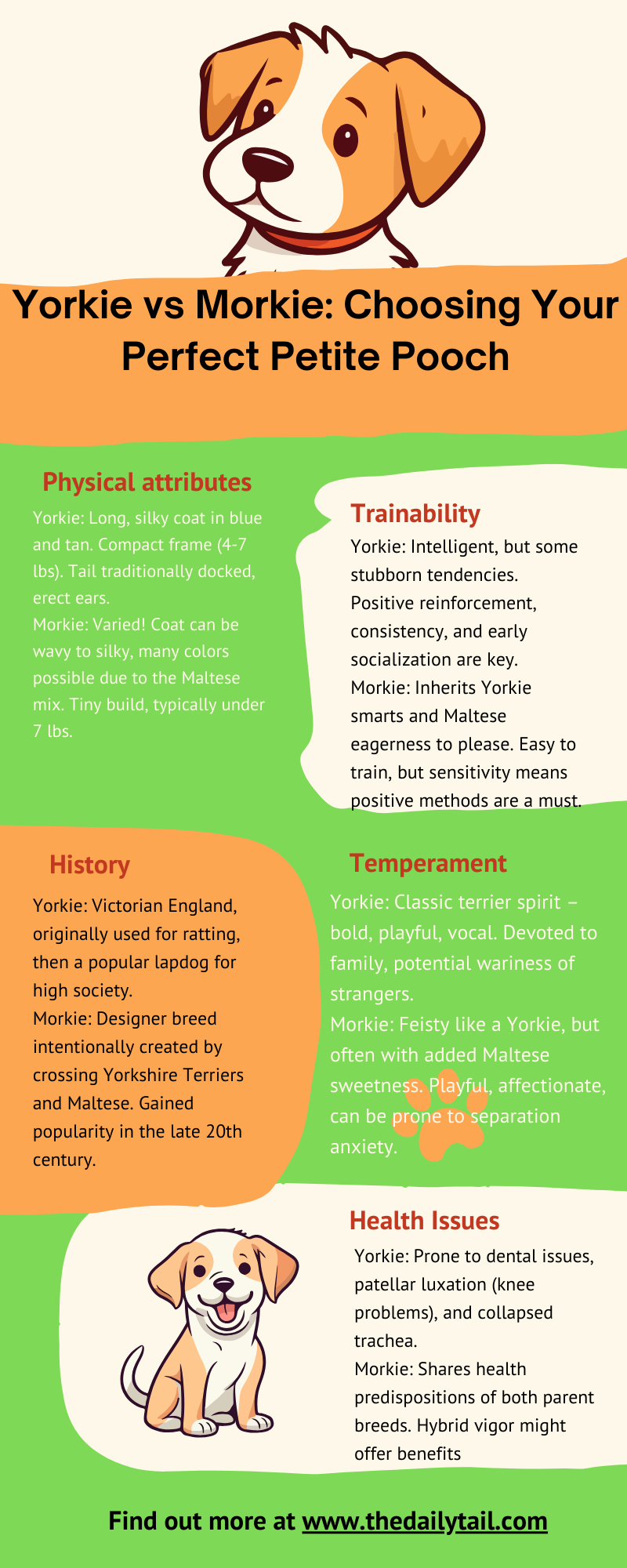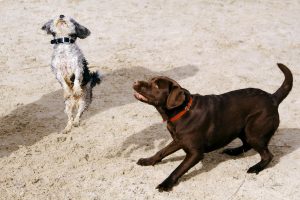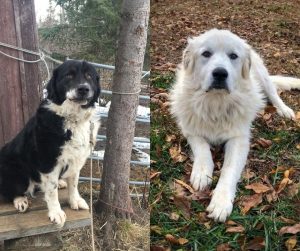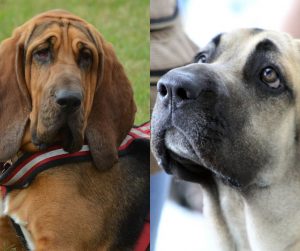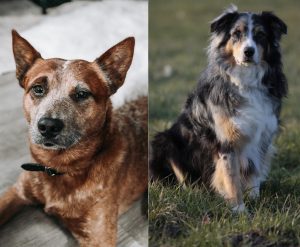As a seasoned dog owner, I’ve seen my fair share of pint-sized divas, but nothing compares to the Yorkie vs Morkie matchup! These fluffy fashionistas might look adorable, but they have personalities that can fill a room. Let’s dive in and see which one of these designer dogs has the biggest bark
When considering a small dog, people often find themselves comparing the Yorkshire Terrier (Yorkie) and its designer dog counterpart, the Morkie.
The Yorkie, known for its vibrant personality and elegant appearance, is a purebred toy breed that has long been a favorite among dog lovers.
Recognized for its hypoallergenic coat and minimal shedding, it’s a sought-after companion for those with allergies.
In contrast, the Morkie—a delightful mix of a purebred Yorkie and a Maltese—brings together the best of both breeds.
These dogs tend to have a variety of color variations and embrace the spirited traits of both parents. While they share similar traits with the Yorkie, they stand out as a unique blend, marking their territory in the realm of designer dogs.
Morkies and Yorkies shine in their own right, each with a distinctive set of characteristics that make them suitable for different family dynamics and lifestyles.
They both require particular attention when it comes to exercise, training, and health care, adhering to their individual needs.
Despite their small size, both breeds are known for their big hearts and ability to bring joy to their owners.
Key Takeaways
- Yorkies are a purebred toy breed with low-shedding, hypoallergenic qualities
- Morkies combine the characteristics of Yorkies and Maltese, offering a diverse array of colors
- Both breeds require specific care in regard to their health, training, and exercise needs
Breed Origins and History
When one looks back through time, the tales of the Yorkshire Terrier and the Morkie are as distinct as their appearances. Each breed’s history is a tapestry interwoven with specific places and purposes.
Yorkshire Terrier Origins
The Yorkshire Terrier dog breed, affectionately known as the “Yorkie,” hails from the rugged industrial heartland of England during the mid-19th century.
Its lineage can be traced back to the diligent weavers in Yorkshire, who needed a small, yet bold, dog to keep their mills free from vermin.
The terriers they chose for this task—including the Waterside Terrier—were the ancestors of today’s Yorkie. By 1861, these toy terriers had been rechristened as “Yorkshire Terriers” by a man named Angus Sutherland, firmly rooting them in their historical backdrop of England.
- Origin: Yorkshire, England
- Ancestry: Waterside Terrier, Toy Terrier
- Purpose: Vermin control in mills
Morkie Origins
The Morkie is a newer entry to the canine world, a delightful blend of a Maltese and a Yorkshire Terrier dog breed.
It is a creation embraced mainly within the United States, gaining popularity quickly for its combination of two beloved toy breeds.
The Maltese, with its own deep historical roots from Mediterranean regions, contributes its silky white coat to the Morkie.
When mixed with the Yorkie’s trademark terrier traits, the result is a charming hybrid dog, known since the early 21st century.
- Mix: Maltese x Yorkshire Terrier
- Development: United States
- Popularity: Early 21st century
Yorkshire Terriers and Morkies, each with their own fascinating backstories, spring from different corners of the dog world. While Yorkies boast a heritage of purpose in England’s industrial mills, Morkies are a contemporary mix that captures the hearts of dog lovers with their combined features and a symbol of crossbreed creativity in the United States.
Physical Characteristics
When deciding between a Morkie puppy and a Yorkie puppy, their physical traits are a primary consideration. They appear quite similar at first glance, but a closer look reveals distinctive differences.
Size and Weight
Yorkshire Terrier dogs (Yorkies) are petite in stature, generally standing between 6 to 8 inches tall. They tip the scales at a lightweight 4 to 7 pounds.
In comparison, Morkies, the designer hybrid dog between a Maltese and a Yorkie parent, tend to be slightly bigger.
Morkies typically reach heights of 8 to 12 inches and weigh in at 7 to 13 pounds.
Coat and Colors
Yorkies boast a luxuriously long and silky coat that is often described as being similar to human hair. Their coat comes in a variety of colors, commonly a rich tan with blue or black markings.
On the other hand, Morkies inherit their coat traits from both Maltese and Yorkie parents.
Their coats can be long, and they sport a soft texture. The colors of a Morkie’s coat are diverse, ranging from white and black to shades of brown and tan, offering a wonderful variance in appearance.
Yorkie vs Morkie Temperament and Personality
Don’t underestimate a dog based on size – I’ve learned that lesson time and time again! Yorkies and Morkies might be tiny, but their personalities are larger than life.
When considering a furry addition to the family, personality matters just as much as looks! With Yorkies and Morkies, you’ll find a spectrum of traits from feisty to affectionate, but the constants are energy and devotion.
Behavioral Traits
Yorkshire Terriers, affectionately known as Yorkies, are energetic and playful. They carry a personality that’s larger than their size, often described as feisty and courageous.
They’re known for being alert and can make excellent watchdogs due to their loyal and protective nature.
The Morkie dog inherits its energetic traits from both parent breeds, the Maltese and the Yorkie.
They’re typically very playful, which makes them a delightful companion. They lean a little more towards the lovable and affectionate side, often due to the Maltese influence, but don’t be fooled—they can be just as feisty when the situation calls for it.
Suitability as Companion Dogs
Both these breeds pack a punch when it comes to companionship.
Yorkies are small but loyal, forming strong bonds with their owners. A Yorkie might be small, but its alert nature makes him a vigilant companion for anyone seeking a little guardian.
Meanwhile, Morkies fit well in various household dynamics. They’re friendly, charming, and their need for attention means they’re happiest when they’re part of family activities.
Both Yorkies and Morkies treasure the attention they receive from their humans, and they return it tenfold with their energetic presence and affectionate nudges. Whether it’s snuggling on the couch or alerting you to the mailman, their temperament and personality fill the home with warmth and amusement.
Health and Care
When considering a Yorkie or Morkie, prospective pet owners should be aware of their unique health challenges and grooming requirements. Each breed has distinct needs that, when properly addressed, contribute to a happy, healthy companion.
Common Health Issues
Yorkies and Morkies are both prone to certain health problems that owners should monitor.
Yorkshire Terriers (‘Yorkies’) can suffer from hypoglycemia, particularly as puppies, which is a sudden drop in blood sugar.
They also are vulnerable to patellar luxation, where the kneecap dislocates, and progressive retinal atrophy which can lead to blindness. Collapsing trachea and dental issues are other concerns for Yorkie health.
Morkies inherit some of these issues, like hypoglycemia and patellar luxation, given their Yorkie lineage. They may also experience reverse sneezing, which, while not harmful, can be alarming for owners. Obesity can be a concern for both breeds and should be carefully managed with diet and exercise.
Grooming Needs
Grooming is essential, not just for a polished appearance, but for maintaining the overall health of both breeds.
Yorkies boast a hypoallergenic coat that requires regular brushing to prevent tangles. Despite being hypoallergenic, skin issues can arise if their coat is not properly cared for.
Morkies, with their Maltese and Yorkie lineage, also have a coat that benefits from consistent grooming.
They can be prone to matting, so regular brushing and occasional trims are critical not just for aesthetics but for their comfort and well-being.
For both the Yorkie and the Morkie, dental hygiene is paramount due to their susceptibility to dental problems, necessitating routine teeth cleaning.
Regular check-ups with a veterinarian will ensure that any signs of common health issues like glaucoma or portosystemic shunt are diagnosed early.
Maintaining an appropriate grooming routine will help keep skin and coat related health problems at bay.
Exercise and Training
When welcoming either a Yorkie or a Morkie into your home, understanding their exercise and training needs is crucial. These lively little dogs have their own unique requirements that, when met, lead to a harmonious life with their human companions.
Training Requirements
Yorkshire Terriers, affectionately known as Yorkies, have a reputation for being somewhat stubborn during training sessions.
Patience and consistency are key. Positive reinforcement techniques work well, as they respond eagerly to praise and treats.
While they might take a little longer to master commands, they’re certainly capable of learning with gentle guidance.
Morkies inherit traits from both Malteses and Yorkies, which can influence their trainability.
Generally, they are eager to please and can be easy to train if their trainer is firm and uses positive reinforcement.
Both breeds may have a slight independent streak, which calls for a bit of creativity in training. They do best with short, engaging sessions that keep their attention.
Exercise Needs
Despite their small size, both Yorkies and Morkies carry a bundle of energy. They require regular exercise to maintain a healthy weight and to keep their lively spirits satisfied.
Daily walks, play sessions, and opportunities to explore in a safe environment are crucial.
Yorkies are known for their spirited nature, which means they often enjoy fast-paced games and can be quite barky if not given enough physical outlet. Morkies may show a similar energy level, and keeping them active helps to mitigate excessive barking, which can stem from boredom or excess energy.
It’s important to remember that although they’re small, Yorkies and Morkies are more than decorative lap dogs—they thrive on engagement and purpose.
Physical activity, alongside mental stimulation, will ensure that they grow into well-behaved and content canine companions.
Breed Recognition and Standards
When exploring the Yorkie and Morkie, knowing how kennel clubs view them can offer insights into their recognition and breeding standards.
Kennel Club Classifications
Yorkshire Terriers, affectionately known as Yorkies, are recognized by most major kennel clubs around the world. The American Kennel Club (AKC) specifically classifies them within the Toy Group, a category of small breeds that are primarily companion dogs.
As purebred canines, Yorkies adhere to strict standards set by these registries, which outline everything from their appearance to their temperament.
- Kennel Clubs Recognizing the Yorkshire Terrier:
- American Kennel Club (AKC)
- The Kennel Club (UK)
- Canadian Kennel Club (CKC)
- Dog Registry of America, Inc. (DRA)
In contrast, a Morkie is a crossbreed, a mix between a purebred Yorkshire Terrier and a Maltese dog breed. They are often referred to as designer breeds or hybrid dogs.
While crossbreeds like the Maltese Yorkie mix have gained popularity for their unique traits and characteristics, they are generally not recognized by traditional kennel clubs such as the AKC. Instead, they might be recognized by organizations that register hybrid dogs. For example, the American Canine Hybrid Club.
- Recognition of Crossbreed Morkie:
- The Morkie is not officially recognized by the AKC
- Some organizations do recognize hybrid dogs and may register Morkies
Lifespan and Aging
When one considers bringing a companion dog into their home, understanding the commitment involved is crucial.
A Yorkie’s life journey typically spans 13 to 16 years. It’s like a sweet marathon of love, with Yorkshire Terriers often hitting the ground prancing well into their teens.
Female Yorkies may have a head start in this marathon—they tend to outlive males by about 1.5 years on average.
On the other side of the leash, the Morkie—a delightful blend of Maltese and Yorkshire Terrier—falls within a similar range. These charming pups have an average lifespan of around 10 to 17 years.
| Breed | Average Lifespan |
|---|---|
| Yorkie | 13-16 |
| Morkie | 10-17 |
It’s always a good idea to remember that a dog’s years can be golden, especially for senior dogs who have lived a life filled with treats and tummy rubs.
Dogs’ autumn years can be filled with tranquility and contentment. Much like humans, they require more care—a cozy spot for naps, a gentle stroll in the park, and extra vet checkups.
For both Yorkies and Morkies, senior dog status is usually recognized as the last quarter of their expected lifespan. Love and care can aid in ensuring that their golden years are comfortable and filled with joy. The bond only deepens as one helps their four-legged companion navigate their senior seasons with grace.
Adoption and Price
When considering the addition of a Yorkie or Morkie dog to the family, one needs to be aware of the aspects of adoption process and the various price points. These delightful little dogs are not only sought for their charming appearance but also for their status as affectionate lap companions.
Finding a Puppy
When looking for a Yorkie vs Morkie puppy, they should be mindful of the fact that availability can vary.
Yorkshire Terriers are purebred dogs, and one can generally find them available through breeders who specialize in this specific breed. However, Morkies, being a crossbreed between a Maltese and a Yorkie parent, can be a bit more unique in terms of availability due to their mixed heritage.
- Check reputable breeders: Make sure they are following ethical breeding practices
- Consider rescue organizations: They might have Yorkies, Morkies, or similar breeds available for adoption
Cost Factors
The cost of a puppy can fluctuate depending on several variables:
- Purebred Yorkies typically range in the ballpark of $800 to $1,000.
Factor Influence on Cost Breeder Reputation Well-known, reputable breeders may charge higher costs Location Prices can vary geographically - The Maltese Yorkie mix, as a designer hybrid dog, do not have a set price. They can sometimes be more affordable, but it’s crucial to watch out for scams. They can average from $1,000 to $3,000, with some factors being:
Factor Influence on Cost Lineage A puppy’s lineage can affect its price Availability Rarer breeds or colors might carry a premium
When opting for adoption, the fee one might expect to contribute generally covers the care the dog has received. An adoption fee for a Morkie is usually around $300. Regardless of the choice between these cuddly companions, it’s essential to account for additional costs such as vet care, grooming, and supplies.

